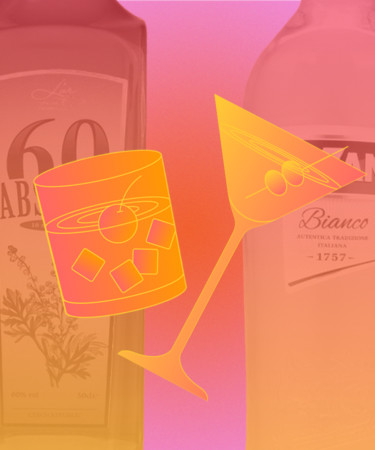This is a great question, because if you haven’t spent time behind the bar, or haven’t read a lot of classic cocktail books, you might assume these modifiers are nothing more than marketing speak. Maybe you call this a Perfect Manhattan cocktail, bartender, but who is to say I’ll agree? In fact, these two words do have meaning when it comes to drinks.
The word “improved” in this context means a bartender has taken a long-standard cocktail recipe and “improved” it with the addition of Maraschino liqueur or absinthe. This began happening in the late 1800s, before there were many established cocktails. Instead, most recipes were simply brandy, whiskey, or genever with sugar, bitters, and ice; so improving them with these two additional ingredients really expanded the options.
When the word “perfect” comes before the name of a classic, usually a Manhattan or a Martini, this means the vermouth in the drink has been split 50-50 sweet and dry. In other words, 50 percent of the called-for vermouth is sweet; and the remaining 50 percent is dry. Nowadays, some bartenders will sub in liquids like sherry for one half of the split vermouth, but the traditional way is to use sweet and dry vermouths for that Perfect Martini.
